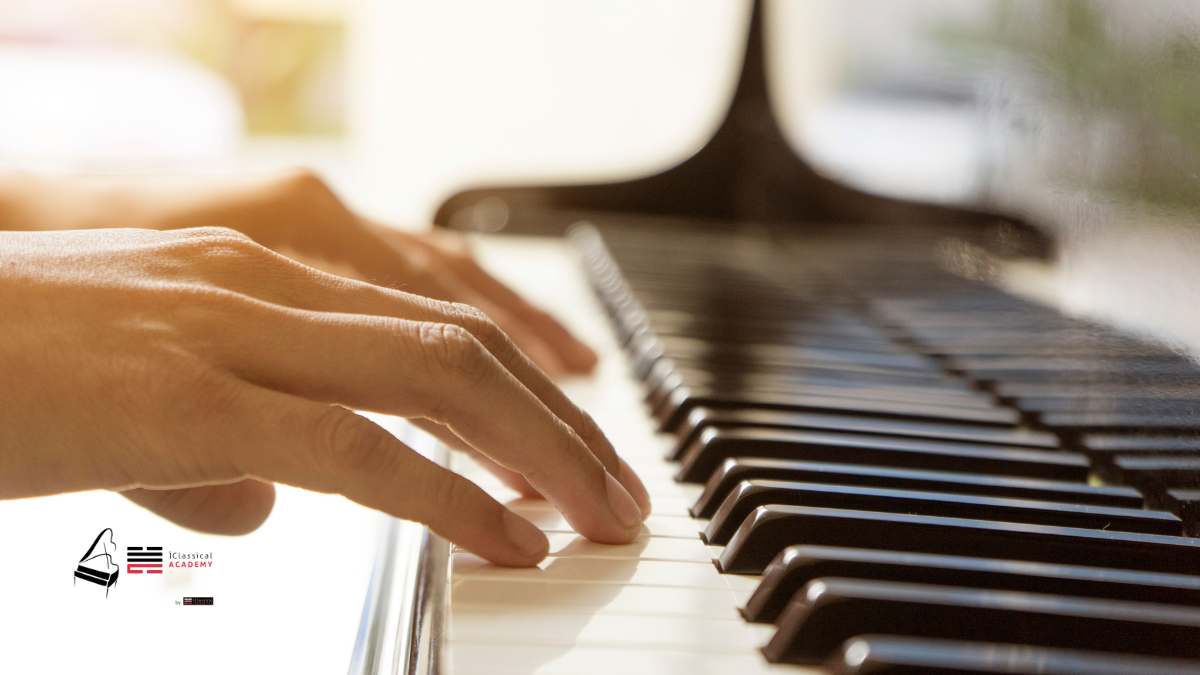Learning Path | Piano | Piano Technique & Musical Understanding
for Intermediate Pianists
Technical Development, Musical Interpretation to Guide You Progressively Toward Mastery of Expressive and Virtuosic Playing.

Instructors
Gülsin Onay
Oxana Yablonskaya
Maurizio Baglini
Peter Frankl
Ricardo Castro
Sander Sittig
Uri Vardi
Duration
9 hours and 40 minutes
12 Chapters / 40 Videos / PDF Workbook
Course description
🎻 Expressive Mastery: 12 Steps for Intermediate Pianists
A 12-masterclass intermediate piano course that offers a well-rounded journey through classical music—from Baroque to 20th century—with a balance of solo works and larger forms like concertos. The course will include both interpretive and technical development elements, such as Feldenkrais.
Perfect for pianists ready to deepen their musical voice and tackle more challenging repertoire.
Click on Chapters to Enter the Learning Path
CHAPTER 1 - Developing Polyphonic Awareness and Tasteful Piano Phrasing
J.S. Bach – Italian Concerto in F major, BWV 971
CHAPTER 2 - Expressive Cantabile Piano Playing and Classical Phrasing
F.J. Haydn – Piano Sonata No. 31 in A♭ major, Hob. XVI:46 (Adagio)
CHAPTER 3 - Classical Style, Dialogue with an orchestra, and Elegant Piano Finger Technique
W.A. Mozart – Piano Concerto No. 23 in A major, K.488 (1st movement)
CHAPTER 4 - Technical Agility and Dynamic Control in a Classical-Romantic Bridge Piece
L. van Beethoven – Piano Sonata No. 7 in D major, Op. 10 No. 3 (1st movement)
CHAPTER 5 - Develop Cantabile Tone, Controlled Voicing, and Expressive Phrasing
Frédéric Chopin – Etude in E major, Op. 10 No. 3 “Tristesse”
CHAPTER 6 - Texture, Tone Color, and Emotional Expression
Robert Schumann – Symphonic Etudes, Op. 13
CHAPTER 7 - Developing Stamina, Chord Technique, and Grand Phrasing
Frédéric Chopin – Polonaise in A♭ major, Op. 53 “Heroic”
CHAPTER 8 - Key Skills for Late Romantic Repertoire
Johannes Brahms – Scherzo in E♭ minor, Op. 4
CHAPTER 9 - Expand Technical Limits – Building Power, Octave Technique, and Endurance
Franz Liszt – Transcendental Etude No. 10 in F minor
CHAPTER 10 - Produce Sparkling Arpeggios, Tremolos, and Lush Pedalling
Franz Liszt – Les jeux d’eau à la Villa d’Este
CHAPTER 11 - Body Awareness to Prepare for Virtuosic 20th-Century Works
Feldenkrais Method – Prokofiev: Toccata in D minor, Op. 11
CHAPTER 12 - Final: Merging Technical Development with Profound Musicality
Sergei Rachmaninoff – Piano Concerto No. 2 in C minor, Op. 18 (1st movement)
Content: Expressive Mastery: A 12-Step Journey for Intermediate Pianists
Each of these 12 masterclasses offers a distinct learning focus – from Baroque clarity and Classical style to Romantic passion, virtuoso technique, modern body-awareness, and concerto collaboration. Together, they form a logical and varied progression through eras and styles, providing the intermediate pianist with a rich and well-rounded learning path. Each step builds on the last, ensuring development of technique alongside musical understanding, and ultimately preparing the pianist for a more holistic and expressive approach to the piano.
Through expert guidance from world-class professors and masterclass demonstrations, students will:
- Developing polyphonic awareness and tasteful phrasing
- Produce a pure tone and voice melodies delicately, honing control and expressive depth in a simpler, elegant setting
- How to keep the playing light yet intense, and includes a note-by-note analysis of the cadenza
- Strengthening technical agility and dynamic control
- Develop a singing cantabile tone, controlled voicing, and expressive phrasing
- Balancing virtuosity and poetry in a large-form Romantic work
- How to project bravura and grandeur while maintaining finesse
- Building power, octave technique, and endurance
- Touch, pedal control, and body awareness
- Enhance technical development with profound musicality
By the final lessons, pianists will possess the technical tools and the musical insight needed to interpret some of the piano's most celebrated works with confidence and artistic maturity.
Ideal for: Intermediate pianists seeking structured progression, deeper musical expression, and preparation for advanced repertoire or conservatory-level study.
